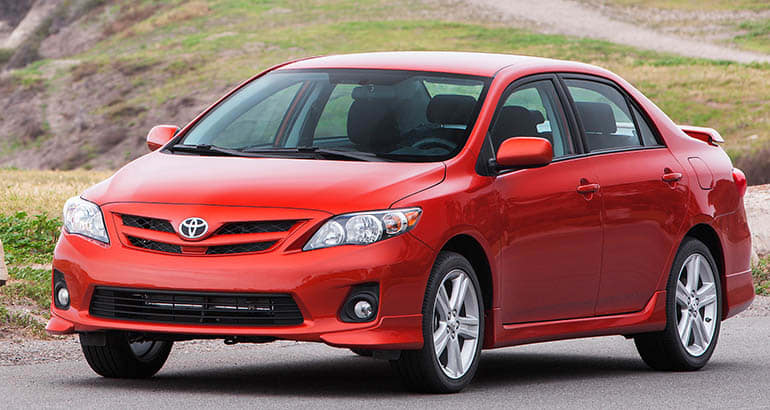Plano, Texas – July 20, 2022 – Toyota Motor Engineering and Manufacturing has remedied issues with 5,350 vehicles including the 2018 Toyota Camry, the 2018 Toyota Highlander, and others in which the brake assist vacuum pump may fail. Additionally, 461 of these Toyota models have been categorized as unreachable and 17 have been removed from the recall. Three groups of these 2018 Toyota Camry and 2018 Toyota Highlander with a defective brakes vacuum pump were remedied in 2018 and three other groups were remedied during 2019.
Plano, Texas – April 19, 2018 – Toyota Motor Engineering and Manufacturing has recalled more than 6,000 vehicles potentially equipped with defective brake components, according to documentation submitted to the National Highway Transportation Safety Administration. The campaign affects models across multiple brands, including:
- 2017 Lexus RX350 sport utility vehicles produced between Oct. 2, 2017, and Oct. 18, 2017.
- 2018 Toyota Camry sedans produced between Oct. 5, 2017, and Nov. 3, 2017.
- 2018 Toyota Highlander sport utility vehicles produced between Oct. 4, 2017, and Nov. 3, 2017.
- 2018 Toyota Sienna minivans produced between Oct. 6, 2017, and Oct. 23, 2017.
- 2017 Toyota Tacoma pickup trucks produced between Oct. 5, 2017, and Nov. 3, 2017.
The Japanese automaker is unsure how many of the recalled vehicles actually contain the defective components.
The Defect
Affected vehicles could come with problematic vacuum pump assemblies. These fixtures are designed to siphon oil from the engine to power brake boosters which, in turn, support optimal braking assist functionality. However, the pumps installed in the recalled models contain improperly machined rotor oil galleys, impairing their ability to extract oil from the engine and power brake boosters.
In some instances, the rotor galleys may cause other internal parts within the vacuum pumps to break, resulting in the failure of the entire rotor, the brake booster and the brake assist system. Such an event would increase the likelihood of an accident. However, Toyota has yet to receive field reports connecting the defective vacuum pump assemblies to any accidents or injuries.
Timeline of Events
On Oct. 11, 2017, an engineer conducting a post-production test drive at the Toyota manufacturing plant in San Antonio, Texas encountered a vehicle
with an overly firm brake pedal, according to an internal document submitted to the NHTSA. Toyota inspected the vehicle and found that the vacuum pump was not effectively powering the brake booster, resulting in pedal resistance.
Additional analysis revealed that the rotor oil galley within the pump did not contain properly drilled holes, prompting the automaker to contact Magna Powertrain of Mexico, the vendor that provided the vacuum pump assembly, and initiate a joint investigation.
As this inquiry moved forward, engineers at another Toyota assembly site pinpointed other vehicles with the same braking problem, which engineering teams quickly attributed to defective vacuum pumps. Soon after these additional defective vehicles were identified, the car manufacturer discovered that the Magna production facility on Aug. 7, 2017, had suffered an unexpected power surge, resulting in significant downtime. During a shop floor reset, maintenance teams failed to properly recalibrate the drilling machine.
Consequently, Magna produced a large number of vacuum pump assemblies with improperly drilled rotor oil galley holes. Over the course of its investigation, Toyota also found that Magna’s documented maintenance policies did not direct teams to perform recalibrations following shutdowns, meaning operations most likely resumed without further process analysis. Magna ultimately made the proper calibrations during Aug. 9, 2017, but by that point, a significant number of pieces had come off the line and been shipped to customers. The company amended its maintenance procedures to address this error.
In January 2018, Toyota began testing the defective vacuum pumps in-house to determine their impact on vehicle drivability. Within a month, engineers had determined that the components could not effectively extract oil from the engine via the improperly drilled rotor oil galley holes. They also found that this, in turn, may damage the vacuum pump assembly and eventually result in the complete loss of the braking assist feature.
On March 28, 2018, Toyota safety and quality assurance officials reviewed the results of the investigation and determined that a voluntary safety recall was necessary. The automaker notified dealers April 3, 2018.
The Solution
Toyota has directed dealers to
replace the vacuum pump assemblies in affected vehicles free of charge, according to an NHTSA recall acknowledgement document. The company intends to notify owners via first-class mail between May 31, 2018, and June 2, 2018. However, owners in need of assistance prior to the start of the recall can reach out to Toyota customer service at (800) 255-3987. Callers should use the internal campaign reference code J0K/JLD. Owners can also contact the NHTSA directly using the agency’s Vehicle Safety Hotline at (888) 327-4236.

